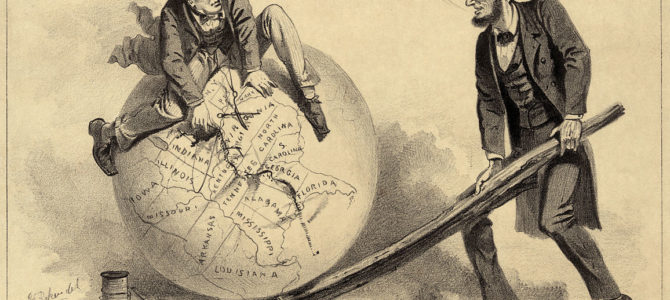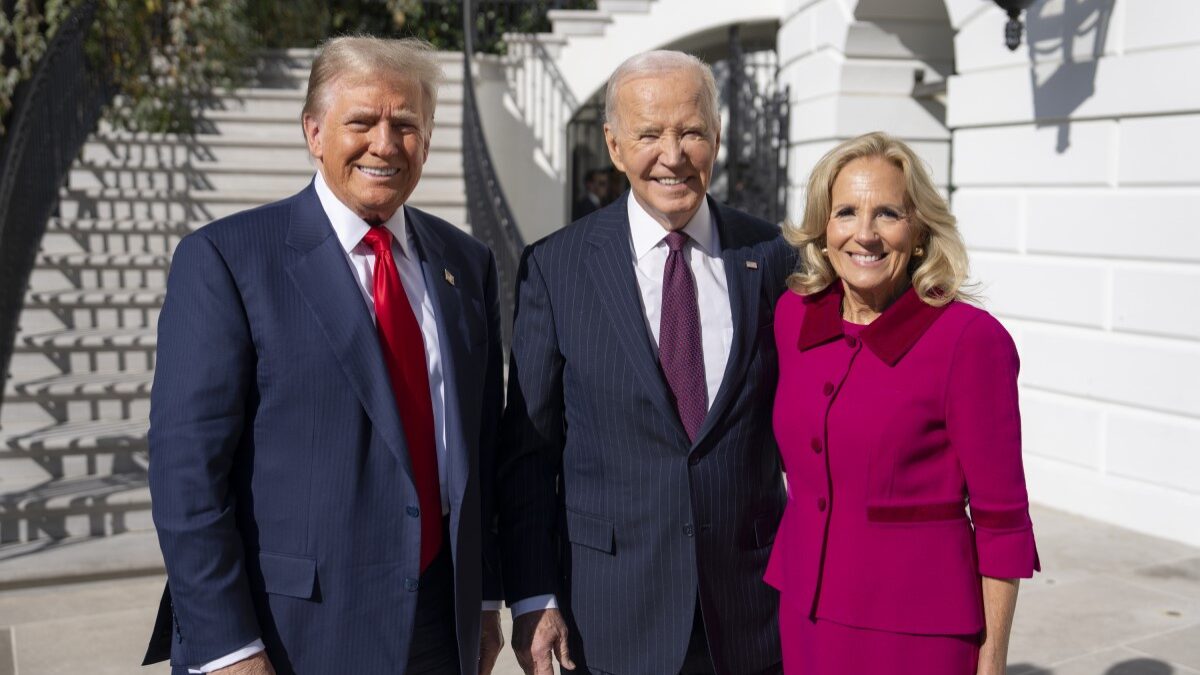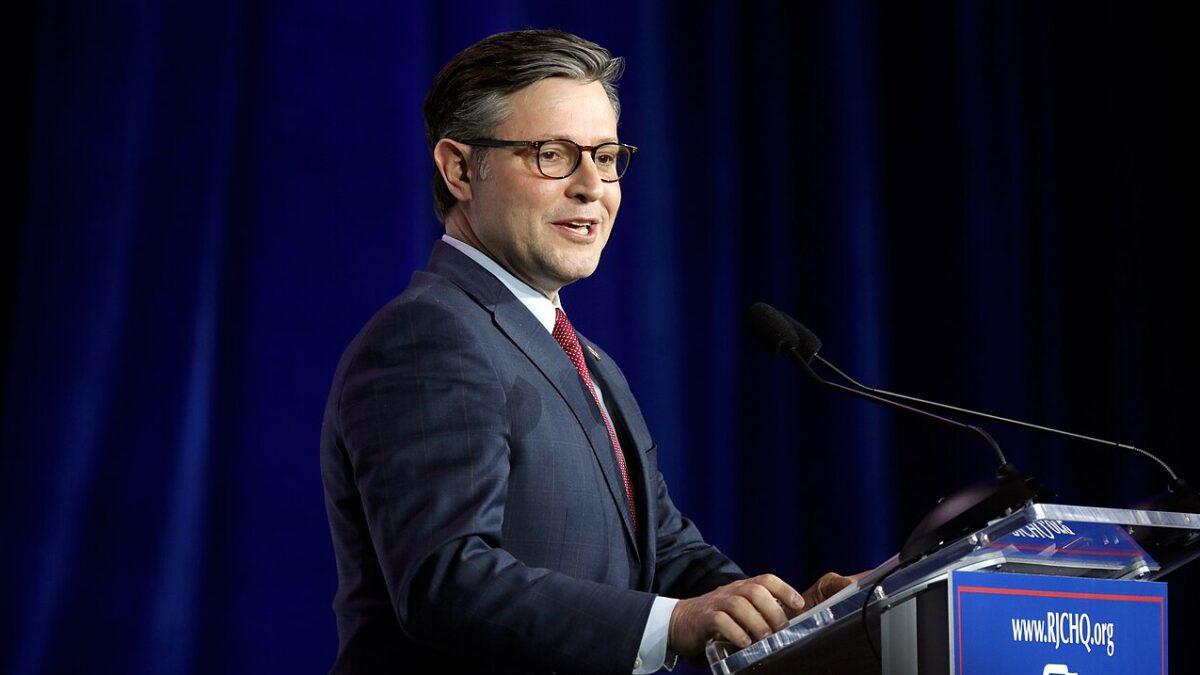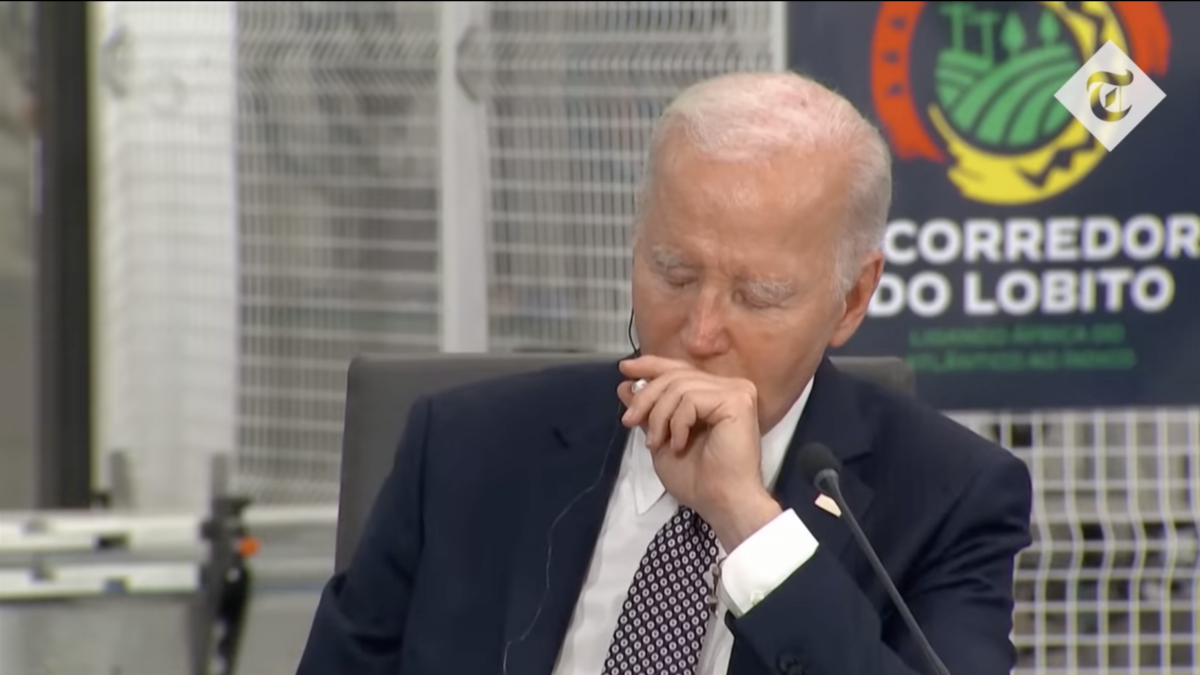
The fight over the Consumer Financial Protection Bureau has been presented as one of many unprecedented events in Donald Trump’s presidency, a sign of how he is different from every other president. This is sometimes meant as a compliment, but more often intended as a disparagement. In neither case is it entirely true.
American history is long enough that increasingly little of what transpires in an administration is truly unprecedented. The contretemps over the Consumer Financial Protection Bureau (CFPB) is similar to events in the administration of Andrew Johnson.
The result of that affair is instructive both in how this one will end and in how the public will perceive it. It also tells us a great deal about the way some in Washington see their job as ruling the people, not representing them.
Two Secretaries, One Office
Although the Reconstruction Era has gotten more mainstream attention lately, to most Americans the Andrew Johnson administration is still a part of the dusty past. The CFPB dispute is, as David Harsanyi explained earlier this week, about which employee has the right to occupy the office of CFPB director. So did the dispute that led to Johnson’s impeachment and near-conviction. Only in that case, the office in question was of much greater importance: secretary of war.
In the days following the Civil War, the secretary of war (a predecessor to the secretary of defense, but without jurisdiction over the navy) occupied an important position in domestic politics, as his job included presiding over the reconstruction of the conquered Confederacy. After Abraham Lincoln’s assassination, his successor, Johnson, seemed to be in accord with Secretary of War Edwin Stanton and the Republican-dominated Congress on how to accomplish this.
Things soon changed. Johnson returned to his pre-war Democratic Party loyalty and worked to re-admit the Southern states to the Union quickly, with no other changes than a de jure abolition of slavery. Stanton and congressional leaders saw their task as larger, and wanted to ensure greater equality for the former slaves in fact as well as in law. As Johnson gradually replaced Lincoln appointees in the cabinet, Stanton was increasingly the only voice in the administration for a vigorous scheme of occupying and rebuilding in the South.
Stanton’s allies in Congress worked to protect him by passing the Tenure of Office Act in 1867. The act decreed that any officer appointed by the president and confirmed by the Senate could not be removed by the president unless the Senate approved. Johnson saw the act for what it was—a curtailment of executive power—and vetoed it, but Congress overrode the veto and the bill became a law. The president no longer had control over his own appointees.
Johnson initially acted in accordance with the law and suspended Stanton while Congress was in recess, selecting Commanding General Ulysses S. Grant to serve as acting secretary in his stead. Stanton went along with this, as Grant was closer to congressional Republicans in his views than to Johnson. When the recess ended, the Senate refused to concur in Stanton’s removal, and Grant returned the office to him. Then Johnson declared the Tenure of Office Act unconstitutional and said Stanton’s removal was valid. He appointed Maj. Gen. Lorenzo Thomas to the “vacancy” and instructed him to report to the War Department for work.
Stanton refused to accept Thomas’s appointment and declined to yield the office. Thomas took the office across the hall, and both men declared themselves the true secretary of war. Stanton retained the keys to the office and did not leave the room, eating and sleeping there for months to prevent Thomas from seizing it.
Meanwhile, the House of Representatives voted articles of impeachment against Johnson, specifically for his open violation of the law, but more generally for his obstruction of Congress’s plans for Reconstruction. The Senate fell one vote short of conviction, and Johnson remained in the White House. With Grant nominated for president and Johnson on the way out, Stanton gave up the fight and relinquished the office.
Rule Without Consequences
The stakes of the fight over the CFPB directorship are far lower, but the precedents of the Stanton-Thomas affair provide a guideline for how the current quarrel should proceed, both legally and politically.
The Tenure of Office Act of 1867 and the Dodd-Frank Act, which created the CFPB, both aim at the same result: removing the power from the president to control members of his administration. The Tenure of Office Act’s authors were concerned with keeping Johnson from overturning Lincoln’s legacy. Dodd-Frank’s authors had a wider goal in mind: removing politics from government. This fits the general progressive belief that we would be better governed by unelected technocrats than by politicians who must take popular opinion into account.
It is a strange take on a republic, and at odds with the Founding Fathers’ opinions. They knew that the government would contain officers who wished to trample the people’s rights. It has been true of every government, elected or unelected, since mankind emerged from the state of nature. The government of the people, by the people, and for the people acknowledges that the people in question are all flawed. As James Madison famously wrote in Federalist 51:
If men were angels, no government would be necessary. If angels were to govern men, neither external nor internal controls on government would be necessary. In framing a government which is to be administered by men over men, the great difficulty lies in this: you must first enable the government to control the governed; and in the next place oblige it to control itself. A dependence on the people is, no doubt, the primary control on the government; but experience has taught mankind the necessity of auxiliary precautions.
The answer they found was not to concentrate power among an enlightened few who are free of human impulses, but to recognize that all humans are flawed and to divide power among them, using their jealousies against each other to ensure that none will let any one accumulate too much control over the country. Both Dodd-Frank and the Tenure of Office Act violated this principle by insulating government officials from the popular will.
Supporters of the Democrats’ self-declared CFPB head Leandra English will be dismayed to learn that the ultimate fate of the Tenure of Office Act does not support their cause. Congress eased the restrictions in 1869 when Johnson left office, but the law remained in force until 1926. That year, the Supreme Court decided in Myers v. United States that a similar law protecting postmasters was a violation of the separation of powers.
It “therefore follows,” the court held, “that the Tenure of Office Act of 1867, in so far as it attempted to prevent the President from removing executive officers who had been appointed by him by and with the advice and consent of the Senate, was invalid.”
In PHH Corporation v CFPB, a case working its way through the courts, modern plaintiffs have challenged provisions of Dodd-Frank that allow for a CFPB director’s firing only “for cause” and that designate automatic funding for the agency from the Federal Reserve, instead of the congressional appropriation process. Both are attempts to create a fourth branch of government not responsible to the people. Unfortunately for the drafters of that bill, by creating the CFPB as an executive agency, they are required to make the officers of that agency responsible to the chief executive, as Myers shows.
There Is More Than One Law
Even without a favorable verdict in PHH Corp., Democrats’ effort to seize the CFPB are doomed to fail. English’s partisans have advanced her case based on an expansive reading of one section of Dodd-Frank, which holds that the deputy director of the CFPB “shall … serve as acting Director in the absence or unavailability of the Director.” As he left office, former director Richard Cordray sent a letter to CFPB employees announcing his appointment of English as deputy director and claiming that “upon my departure, she will become the acting director.”
That Parthian shot will produce only a Pyrrhic victory. Believing that the statute gives Cordray the right to appoint his successor without recourse to the Senate, the president, or anyone requires a strained reading of Dodd-Frank along with a willful blindness to the rest of U.S. Code, especially to the Federal Vacancies Reform Act (FVRA).
The FVRA is the standard means of temporarily replacing Senate-confirmed officers, and gives the president wide latitude to replace Cordray, or any other officer, with another official the Senate had already confirmed to another office. Trump has done so, appointing Office of Management and Budget Director Mike Mulvaney to head the CFPB until a permanent replacement is found.
English and her allies claim the FVRA does not apply to the CFPB, but the CFPB’s own general counsel, Mary McLeod (whom Cordray hired in 2015) disagrees, as do many other legal scholars. Thomas Berry explained this point in a Federalist Society blog earlier this week:
[E]ven if the FVRA is not ‘the exclusive means’ to fill the CFPB slot, it is still an available means. FVRA Section 3349(c) explicitly lists certain offices that the FVRA ‘shall not apply to,’ including multi-member boards and Article I judgeships. If Congress wished for the FVRA to be unavailable whenever an office can be temporarily filled using another statute, Congress would have listed those offices under Section 3349(c). But it did not, and so ‘the exclusive means’ should be read to mean what it says, and nothing more.
Principles Before Party
English, Cordray, and their supporters like Sen. Elizabeth Warren are grasping at straws and letting their emotional distaste for Trump override their good sense. The lessons of the Tenure of Office Act are educational here, too. That act initially inspired popular acclaim when directed against an unpopular president, but when people took the long view they began to see that it was at odds with the basic principles of our Constitution.
When the Supreme Court struck down that act in Myers, there was no groundswell for a constitutional amendment, as there often is after unpopular court decisions. No one agitated for a Tenure of Office Amendment, because people realized that executive officials should be responsible to the president, who is himself responsible to the people.
The principles Madison espoused in 1788 still hold true today. The path to freedom is not in concentrating power in unelected hands, but in scattering it and making its holders have to answer to the people who elected them.
Warren and her fellow Resisters see the CFPB as a final redoubt of President Obama’s legacy. To achieve this, they are willing to overthrow the principles of separation of powers and responsible government and erect a self-perpetuating rule by insiders. The lessons of the 2016 elections are lost on them, and their actions—which are certain to fail—only drive home the point that the Democratic Party machine would rather rule the people than represent them.








